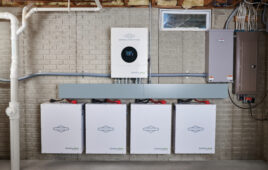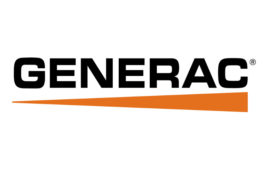The Vermont Public Utility Commission has issued its required update of the state’s net-metering program. As a result of the adjustments, future net-metering systems that apply for permits on or after August 1, 2024, will see a small net decrease in compensation — less than three-fourths of a cent — compared to what existing systems receive today. Most existing net-metering systems will see a 7.33% increase in their compensation because of concurrent increases in statewide electric rates.
Every two years, the commission must recalculate the value of the bill credit that net-metering customers receive for energy produced by their net-metering system to reflect changes in retail electric rates since the last biennial update. This is known as the “statewide blended residential rate,” which has increased by $0.01257 per kWh since 2022.
The commission is also required to assess the incentives and overall compensation offered to new net-metering systems and decide whether they should be adjusted upward or downward. The purpose of this adjustment is to ensure that the pace of net-metering deployment is consistent with Vermont’s policy objectives while considering the program’s impacts on electric rates. Considerations include the changing cost of installing net-metering systems, the pace of past net-metering deployment, and the impact of net-metering on all ratepayers. This year, these considerations led to a 2-cent decrease in overall compensation for new systems applied for on or after August 1, 2024, but the net effect because of the increase in retail electric rates discussed above is a decrease of only three-fourths of a cent.
The net-metering program, which was established in 1999, is only one of several programs available for developing solar and other types of renewable energy in Vermont. Customers who install net-metering systems, such as solar panels and small wind turbines, can offset their electric bills through financial incentives based on the amount of electricity generated by their net-metering systems. The commission is required to reconsider the financial incentives offered to new net-metering systems every two years through its biennial review process to ensure that the program continues to provide value to all Vermonters, including those who do not directly participate in the net-metering program. This order is a conclusion of that review process.
The information and data presented in this year’s biennial review proceeding show that the net-metering program — in particular, solar net-metering — continues to have robust participation. In addition, many of the best-sited net-metering systems (for example, roof-mounted systems) benefit from streamlined permitting, by which a CPG is issued within 15 days. In 2023 alone, 2,351 new net-metering systems, for a total of approximately 25 MW of new, renewable energy capacity, received certificates of public good (CPGs) from the commission. However, the data presented in this biennial update proceeding also demonstrate that net-metering is the costliest of the state’s renewable energy programs, and that the pace of net-metering installations far exceeds the pace of other less costly renewable energy projects. For example, 2023 saw the interconnection of more than 28 MW of net-metered projects, compared to 4.4 MW of standard-offer projects and 5 MW of utility-sourced solar power at a significantly lower price. This trend ultimately increases rates for Vermonters who do not or are unable to participate in the net-metering program. Therefore, to better moderate the pace of new net-metering development, the Commission determined to reduce the compensation offered to new net-metering systems by 2 cents per kWh — resulting in a net decrease of $0.00743 per kWh, or less than three-fourths of one cent. However, because of other adjustments made in today’s order, most existing net-metering systems will benefit from an increase of $0.01257 per kWh, or approximately 7.33%, in their current compensation.
“Vermont’s efforts to address climate change will require a significant transition to electric vehicles and heat pumps powered by carbon-free electric generation,” said Commission Chair Ed McNamara. “Even with the $0.00743 per kWh reduction in net-metering compensation for new systems, Vermonters continue to pay significantly more for net-metering compared to equivalent new renewable generation sources. Going forward, Vermont should be prioritizing least-cost renewable generation to meet our climate and renewable requirements.”
Solar industry trade group Renewable Energy Vermont was strongly opposed to the changes. REV said the latest cuts represent the seventh reduction to net metering compensation since 2017, a period that has seen a 32% drop in net-metering installations.
During the update proceedings, REV organized a letter signed by more than 50 House members urging the PUC to reject these changes. The PUC opted to ignore this message from the legislature.
Vermont environmental groups Sierra Club, 350VT, VNRC, VPIRG and Conservation Law Foundation joined with REV in opposing this decision.
“The timing of this decision — and the ramifications of it at this unique moment — is unfortunate,” said Johanna Miller, energy and climate program director at the Vermont Natural Resources Council. “The Inflation Reduction Act is just ramping up, offering unparalleled opportunities to help more Vermonters invest in solar in some of the best places to site it — where people live and use energy.”
The changes announced through the biennial update will take effect on August 1, 2024.
News item from the State of Vermont Public Utility Commission. Updated on June 7.





Parrotting the PUC’s Order, which is full of self-justifying language, without ANY opposing viewpoints from industry reps, is mediocre reporting at best and frankly, disappointing from such a great publication that usually covers issues pretty fairly. Not a single comment from Renewable Energy Vermont? No discussion of the enormous drop in commercial-scale (500kW – what passes for commercial-scale in VT) installations over the past several years? No discussion of the workforce reductions? The fact that there is literally NO program in place that replaces the Standard Offer program? No discussion about the fact that Governor Scott just vetoed a bipartisan, coalition-led bill that would have truly accelerated Vermont’s growth? Vermont used to be a leader in this space. This article whitewashes the sorry state of affairs here in the Green Mountain State.
Hey Dave, thanks for your comment. Sending you an email now so we can get Green Lantern’s POV out there.